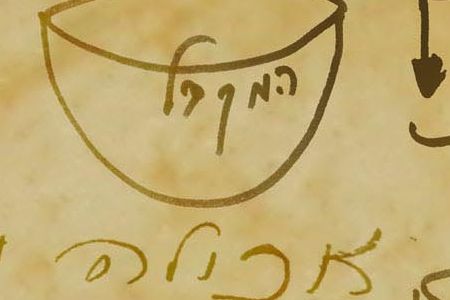Numbers 13:1-15:41
This Week’s Torah Portion |June 8 – June 14, 2014 – Sivan 10 – Sivan 16, 5774
In A Nutshell
The portion begins with Moses sending the twelve heads of the tribes to spy in the land of Israel, to examine it and prepare to enter it. The spies return and describe a land flowing with milk and honey, but occupied by giants that will make it impossible to enter the land, conquer it, and rule it. Their words spread fear in the people, except for Joshua Ben Nun, and Caleb Ben Yephunneh. This angers the Creator and He wants to destroy the entire people. Moses prays and asks for mercy on the people. As a result, only the ten spies that slandered the land die in a plague. The other two, Joshua Ben Nun and Caleb Ben Yephunneh continue to accompany the people.
Later in the portion, the children of Israel trip once more and seek to run back to Egypt. In the end they repent and abort their decision. Afterward Israel make another mistake: they try to fight and conquer the land without instructions to do so, and therefore fail.
The portion ends with the instruction to wander another forty years in the desert until the entire generation of the spies passes away, except for Joshua Ben Nun, who is to lead the people into the land of Israel.

Commentary by Dr. Michael Laitman
We have to develop from our will to receive, from our ego, into a state in which we come to be “the people of Israel,” when we are all Yashar El (straight to God), having the quality of the Creator: bestowal and love. We will all be in “love your neighbor as yourself,”[1] in love of others, because we have no other choice.
We must not go by our own reason, which alternates between dictations to advance and retreat. Rather, we must fight while examining if we are doing what is right, and if the way is right. The portion explains that we cannot know what to do or even where to start. It is a problem because we are accustomed to work by the mode of “A judge has only what his eyes see.”[2] It seems as though we must advance by following our essence, according to our Kelim (vessels/tools), using our minds and hearts.
The Creator demands that we develop and do something. But how can we do something if we cannot tell between right and wrong, if we do not know whether to move forward into war or run back to Egypt? We can see that there are giants in the land of Israel. And while there are also fruits there, we cannot tell who rules there, which desires, or how big they are.
Continue reading “Shlach Lecha (Send Forth) Parsha – Weekly Torah Portion”


